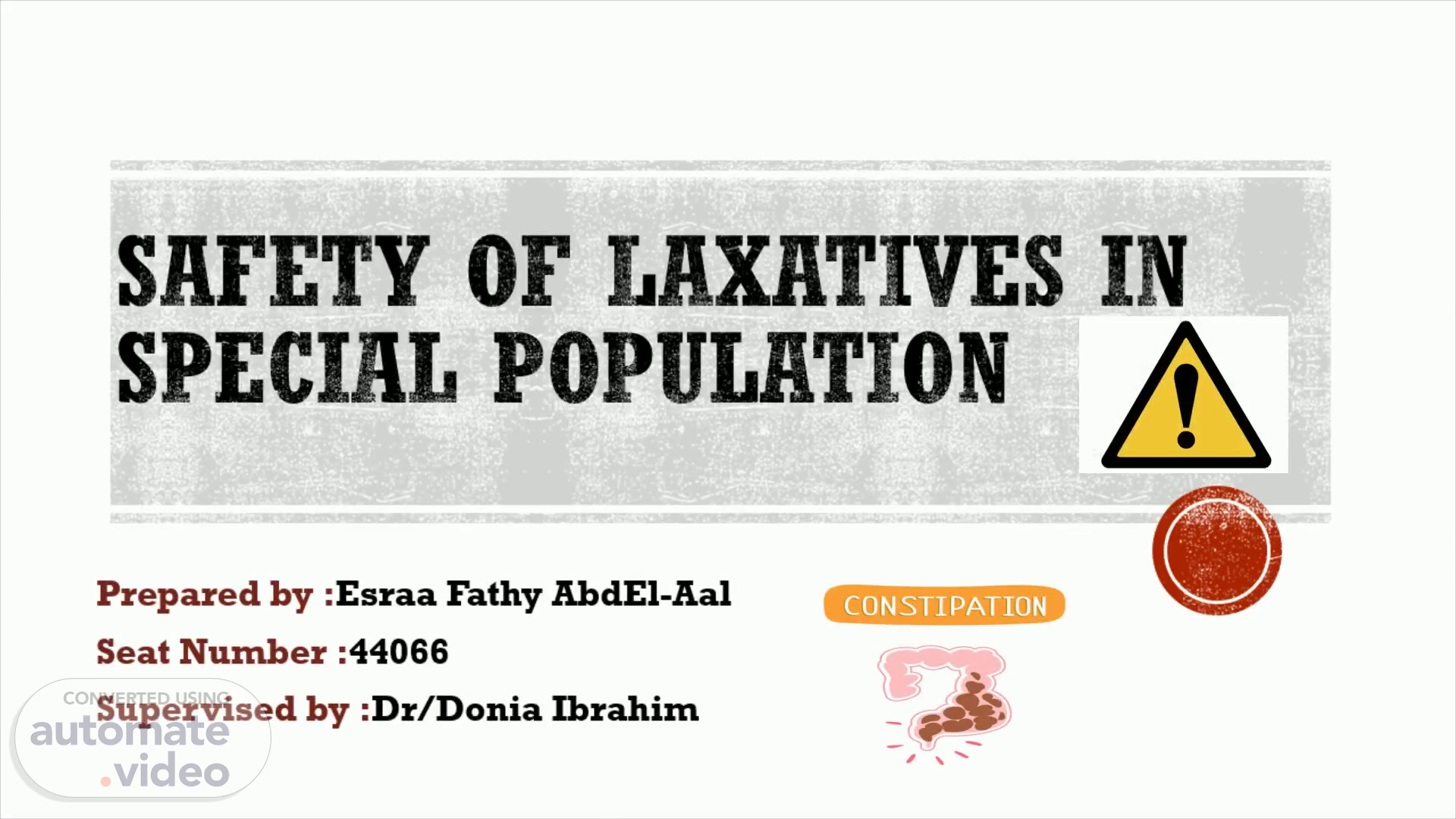
Page 1 (0s)
Safety of Laxatives in Special Population. Prepared by : Esraa Fathy AbdEl-Aal Seat Number : 44066 Supervised by : Dr/Donia Ibrahim.
Page 2 (11s)
Classes of Laxatives. Bulk-forming laxatives ( such as fibers or psyllium ). These absorb water in the bowel and swell to bulk out the stool making it softer and easier to pass Emollient stool softeners ( such as docusate ). These moisten and lubricate the stool making it easier to pass Osmotic laxatives ( such as lactulose ) draw fluid into the bowel and soften stools Stimulant laxatives ( such as senna or bisacodyl ) promote contraction of the intestines, promoting the movement of stools through the bowel..
Page 3 (1m 30s)
Safety In pregnancy. Bulk Forming Laxative : are not absorbed into the bloodstream but increase the bulk of the stools. Use during pregnancy is common and has not been linked to any problems in the unborn baby. Emolient Laxative : Docusate has not been formally assigned to a pregnancy category by the FDA . Docusate should only be used during pregnancy if there are no other alternatives and the benefit outweighs the risk . Osmotic Laxative: Only a small amount of the drug is absorbed by your body, so considered safe for short-term use during pregnancy. Stimulant laxative : It is generally safe to use gentle laxatives, but it is best to avoid stimulant laxatives because they can induce uterine contractions ..
Page 4 (2m 1s)
Safety in Lactation. Bulk-forming laxatives: not absorbed from the GI tract and are considered compatible with breastfeeding. Osmotic laxatives: Short-term use of osmotic laxatives is not considered to pose a risk to breastfed infants Stimulant laxatives: Senna can cause diarrhoea and abdominal cramps , although this has not been confirmed as an issue in breastfed infants. Bisacodyl and sodium picosulphate “Emollient Laxative” are not absorbed, and their common active metabolite is undetectable in breast milk..
Page 5 (2m 23s)
Safety in Paediatric. Bulk Laxative : Do not give psyllium to a child younger than 6 years old without medical advice. Emollient Laxative : Never give docusate to a child under 12 years old unless their doctor prescribes it. Osmotic Laxative : Safe from one month Stimulant Laxative : It is regarded as safe when used by children over the age of 2 ..
Page 6 (2m 42s)
Safety in Geriatric. Bulk Laxative : Psyllium has a reputation of being safe and effective medication for patients suffering from chronic constipation, especially in elderly . Emollient Laxative: STOOL SOFTENERS Three RCTs involving older patients showed a benefit of docusate sodium (Colace) over placebo in the treatment of constipation Osmotic laxative: Lactulose, lactitol and macrogol are the most commonly and safest compounds used in the elderly Stimulant Laxative : Senna Is regarded as safe when used by Elderly Magnisum based laxative should be avoided New agent like lubiprostone prucalopride data about this agent are still limited Senna combination and PEG apear to have more favorable profile over the other laxative.